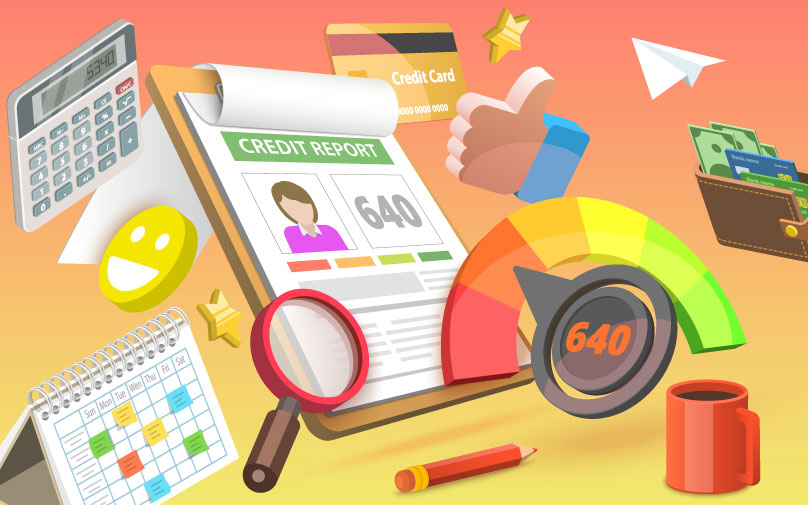
It’s no secret your credit score is one of the most important factors lenders consider when deciding whether they’ll approve you for a financial product. Your credit score gives lenders an overview of your credit history, and more specifically, your creditworthiness. For this reason, it’s crucial you know where your credit stands before making any major financial moves.
If your credit score is 640 or close to it, you might have some questions about what a score in this range empowers you to do. In this article, we’re going to find out how good a 640 credit score is, what you can do with it, and steps you can take to improve it.
Is a 640 Credit Score Good or Bad?
In FICO® credit reports, scores are officially considered “good” from 670 upwards and “poor” below 580. In other words, a 640 credit score is neither good nor bad – and it’s generally enough to get a loan from some online lenders.
Technically, FICO® credit scores between 580 to 669 are classified as fair – so while a 640 credit score is certainly below the average good credit score of 670 to 739, it’s not necessarily considered high-risk. Although some traditional banks and credit unions may consider a 640 credit rating as unfavorable and deny credit applications, online lenders are typically more flexible and may be more likely to offer credit at this level.
What Can I Get With a 640 Credit Score?
While a FICO® score of 640 could be high enough to qualify for a loan, keep in mind that a good credit history and debt-to-income ratio (DTI) are important as well. It’s also important to note that interest rates and monthly payments are typically higher with a lower credit score.
Pro tip: By teaming up with a co-signer or co-borrower, you could qualify for a loan with low interest rates – even with a 640 score.
Five Tips to Improve a 640 Credit Score
1. Pay on Time
Your payment history is the most important factor in determining your credit score, and every late payment will lower it – sometimes significantly. So, if you want to increase your credit score, it’s crucial that you make your monthly payments on time.
2. Reduce Credit Card Balances
The amount of debt you have is another major factor in determining your credit score. Some people may be unaware that how much you owe on revolving accounts vs. your total available credit also influences your score.
This value is called your credit utilization ratio – it’s given in percentage form and shows the ratio of your balance and the credit limit. A high utilization ratio can be interpreted as an indication that the borrower relies on his credit too much and may have payment problems in the future. To avoid a high credit utilization ratio, make sure you pay off your credit balances as soon as possible – or avoid having a balance in the first place.
3. Avoid Taking Out New Debt Frequently
FICO® calculates the average age of all your credit card accounts, so every time you open a new account, the average age decreases. The longer the average age of your accounts, the better it is for your credit score – so try to avoid opening new accounts unless it’s necessary.
4. Mix Your Types of Credit
Lenders want to see that borrowers can handle their credit accounts and make payments on time, which is why a mix of credit accounts may strengthen the positive image of trustworthiness. Of course, it’s not necessary to have every form of credit in your repertoire – it’s much more important to keep your balances low and continue making on-time payments.
5. Keep Old Credit Card Accounts Open
The length of your credit history affects your credit score, so even if you don’t use them anymore, keeping old credit card accounts open could imply a certain consistency to the lenders. With that said, be sure to use the credit card now and then so it’s not closed by the bank due to inactivity.
All in all, improving a 640 credit score to get a personal loan is more than possible with some time and effort. For further information, hop over to our article about factors that affect your credit score.
This article is for educational purposes only and is not intended to provide financial, tax or legal advice. You should consult a professional for specific advice. Best Egg is not responsible for the information contained in third-party sites cited or hyperlinked in this article. Best Egg is not responsible for, and does not provide or endorse third party products, services or other third-party content.